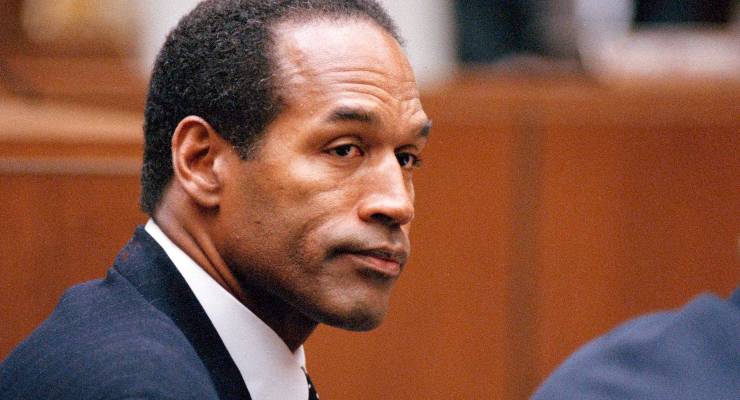
“Trial of the century” sounds like lazy hyperbole, but there is an argument that that is exactly, literally, what the 1994 trial of O.J. Simpson, who died this week at the age of 76, became. Hauntingly sketched in the ESPN documentary series Made in America, the trial became a crucible for generations of brutal and racist policing, the impunity afforded to celebrities, the blind eye turned to domestic abuse and much, much more.
There are many contenders for the most bizarre and unedifying moment in Simpson’s life in the nearly 30 years since he was acquitted of the murder of his ex-wife Nicole Brown and her friend Ron Goldman. These include Juiced, the execrable prank show he made and the softcore rap video he released to promote it, as well as his eventual imprisonment for an attempted 2007 robbery in Las Vegas. But possibly the most breathtaking — and certainly the most high profile — was his decision to put his name to a memoir called If I Did It, in which he speculated how he would have murdered Brown and Goldman, if indeed he had been guilty.
It was a transparently grubby, deeply offensive attempt to cash in on the horrifically brutal murder of two people — murders for which, were it not for the ruthless skill of his defense team and some profoundly inept police work, Simpson would have almost certainly been found guilty. What kind of company would allow itself to be tainted by funding and promoting such a piece of work?
Enter News Corp. The publisher, initially, was ReganBooks, an imprint of News Corp’s publishing arm, HarperCollins.
There is some dispute about exactly how If I Did It came to be. Ghostwriter Pablo Fenjves says the book was written with extensive collaboration with Simpson. Fenjves lived less than a 100 metres from the scene of the crime and had heard Brown’s dog barking as she was murdered — indeed, he testified against Simpson in the trial. He told Slate in 2006 his process in writing the book was “sitting in a room with a man I knew to be a murderer, and [letting] him hang himself”. Simpson’s then manager Norm Pardo claimed Simpson had little to no involvement, and had been offered $600,000 by ReganBooks to claim he wrote it.
Publisher Judith Regan refused to disclose what Simpson was paid but said the book was Simpson’s idea. “This is an historic case, and I consider this his confession,” she said at the time. On top of that, Fox News filmed an interview with Simpson promoting the memoir, which the network intended to air as a two-part special.
The backlash, led by Goldman and Brown’s families, was swift. Eventually it proved too much. The book and interview were cancelled and Murdoch issued a statement saying: “I and senior management agree with the American public that this was an ill-considered project. We are very sorry for any pain that this has caused the families of Ron Goldman and Nicole Brown Simpson.”
In a further twist, the Goldman family acquired the rights to the book as part of their pursuit of the US$33.5 million they had been award in the 1997 civil suit. The book cover was redesigned so that the word “If” was a different colour to “I did it” and a subtitle “Confession of the killer” was added, along with “key commentary” on the claims of the book. It was finally published on September 13, 2007. That same day, Simpson participated in the attempted robbery — trying to take back the memorabilia of his glory days he had been selling since his fall from grace — that would put him in prison for nine years.
Fox eventually aired the interview as O.J. Simpson: The Lost Confession? in 2018. The Goldman’s family lawyer welcomed the airing of the footage, noting it would allow people to make their own conclusions. Much of the commentary focused on Simpson’s shift from hypothetical early on to definitive, first person statements.








Even with the Murdoch link, this article – which by default celebrates the worst of American popular culture – should never have been published. It should never have been commissioned or written in Australia.